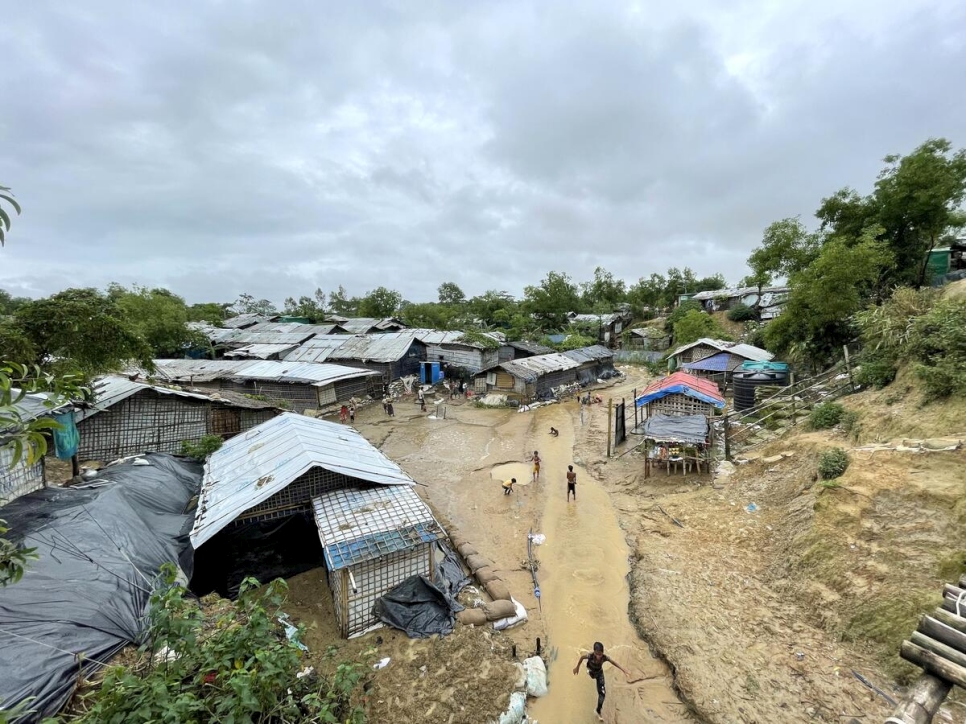This is a summary of what was said by UNHCR spokesperson Babar Baloch – to whom quoted text may be attributed – at today’s press briefing at the Palais des Nations in Geneva.
 Rohingya refugee children play after heavy rainfall in a camp in Cox’s Bazar, Bangladesh. © UNHCR/Amos Halder
Rohingya refugee children play after heavy rainfall in a camp in Cox’s Bazar, Bangladesh. © UNHCR/Amos Halder
As the Rohingya refugee response in Bangladesh approaches its fifth year, UNHCR, the UN Refugee Agency, and partners are calling for robust and sustained international support for refugees and the Bangladeshi communities generously hosting them.
The 2022 Joint Response Plan (JRP) for the Rohingya Humanitarian Crisis is being launched today (Tuesday, 29 March). Humanitarian agencies are seeking more than US$881 million to support approximately 1.4 million people, including over 902,000 Rohingya refugees in Cox’s Bazar and Bhasan Char, and around 540,000 Bangladeshis in neighbouring communities.
Under the leadership of the Bangladeshi authorities, the JRP brings together the activities of 136 partners, of which 74 are Bangladeshi organizations. It also recognizes the significant contributions of refugees themselves to the response.
The Government of Bangladesh, supported by the international community, has generously hosted Rohingya refugees for decades. As global displacement continues to rise, UNHCR and partners are emphasizing the need to ensure that the Rohingya situation does not become a forgotten crisis. It is therefore vital to ensure continued funding and support to meet the needs of refugees and surrounding host communities.
Given their geography, the refugee camps in Cox’s Bazar are especially vulnerable to natural disasters. This year’s JRP accordingly highlights the need for enhanced efforts towards disaster risk management and climate change mitigation, including through reforestation and energy interventions.
Yet the solutions ultimately lie within Myanmar. Many Rohingya refugees continue to express their desire to return home when conditions allow. UNHCR and partners maintain a presence in Rakhine State to support Myanmar to create the conditions that would be conducive for such returns. The steadfast support from the international community has been, and will be, crucial in delivering lifesaving protection and assistance services for Rohingya refugees, until they are able to return in safety and dignity.
While they are in Bangladesh, it is important that Rohingya refugees are able to live in safety and with dignity, and that they can develop the skills and capacities that could support their sustainable return.
For the first time, the JRP also includes humanitarian activities on Bhasan Char, to which over 24,000 Rohingya refugees have been relocated by the Government of Bangladesh. It is critical to continue to scale up essential humanitarian services on the island, including in the areas of health, protection, nutrition, education, and livelihoods and skills building.
The virtual JRP launch event is being co-hosted by the Government of Bangladesh, the International Organization for Migration and UNHCR.








